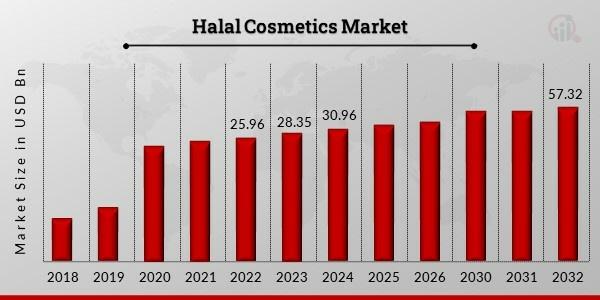The global cosmetics industry is experiencing a remarkable shift driven by consumers seeking products that align with ethical, religious, and health-conscious values. This change has brought the halal cosmetics segment into sharp focus, offering beauty products compliant with Islamic law that exclude ingredients such as alcohol and certain animal derivatives. The halal cosmetics industry is gaining traction beyond Muslim-majority countries, appealing to a broader audience interested in clean, cruelty-free, and ethically produced products.
The growth of the Halal Cosmetics Market reflects this rising demand, alongside broader trends in sustainability and ingredient transparency. Market research projects bullish growth with the market expanding from USD 53.1 billion in 2025 to an estimated USD 152.0 billion by 2035, growing at a CAGR of 11.1%. This growth is propelled by the expanding Muslim population globally, combined with increased disposable incomes and male and female grooming preferences.
One vital aspect contributing to this upward trajectory is consumer awareness around halal certification. More brands are investing in halal-certified ingredients and production processes, ensuring compliance with international halal standards to foster consumer trust. Additionally, regulatory frameworks and certification bodies are playing a key role in market standardization, reinforcing the credibility of halal claims and boosting market penetration.
Another notable driver is the rise of digital retail, which accounts for a significant portion of halal cosmetics sales. Consumers increasingly appreciate the convenience of accessing a wide range of halal-certified products online, supported by targeted digital marketing and influencer collaborations. Retail channels like hypermarkets and supermarkets complement e-commerce growth, offering consumers greater visibility and accessible price promotions.
Sustainability and natural ingredient trends heavily influence product innovation within the halal cosmetics space. Products like halal-certified skincare dominate the market, propelled by the demand for organic, vegan, and cruelty-free formulations. As consumers become environmentally conscious, brands that align halal values with sustainability are gaining a competitive edge.
In summary, the Halal Cosmetics Market is poised for significant expansion driven by evolving consumer attitudes toward ethical beauty, robust halal certification frameworks, and the integration of digital and sustainable strategies. The Halal Cosmetics Industry Analysis highlights the sector’s promising outlook shaped by innovation and growing global acceptance.


Join our community to interact with posts!